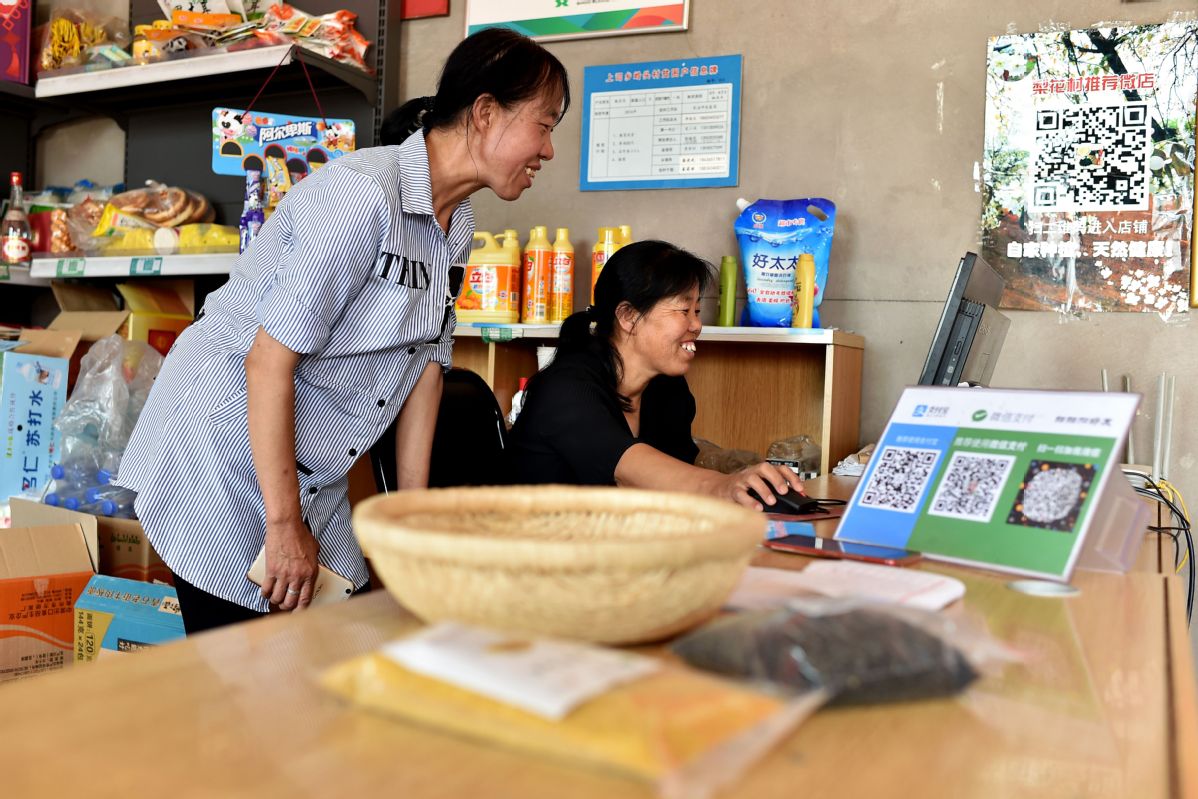Social networks boost consumer purchases


Retail businesses using apps prosper as online platforms have deeply penetrated into Chinese people's lives
Every night before going to bed, Yang Huiwen, a 22-year-old public relations intern in Beijing, would spend about an hour on the short-video sharing app TikTok.
One of her favorites is Li Jiaqi, a well-known influencer in the makeup sector who has more than 10 million followers on the Chinese Twitter-like social platform Sina Weibo.
In his livestreaming videos, Li would try on dozens of lipsticks on his hands and lips one by one, compare colors that have subtle differences, dish out on the merits of brands, and have "convenient" links right there for anyone who wants to buy.
Yang said she often buys two lipsticks after watching the videos, and they cost 500-600 yuan ($72-87) each. She added each show of Li would attract as many as 6 million fans to watch. Some 100,000 products may be purchased within several minutes.
Besides Li, Yang follows a dozen bloggers on Weibo too. They are mainly involved in skincare and makeup. She would also click ads on WeChat Moments if the spokesperson catches her eye. Her monthly expenditure on online shopping through social platforms is about 2,000-3,000 yuan.
"Many of my friends agree that recommendations from key opinion leaders like Li are uppermost in our purchase decisions because we trust them," she said. "And if we know more details, we're more motivated to buy."
Chinese consumers can spend about four hours on mobile phones every day on average, including over 2.3 hours on social media platforms.
The number of monthly active users of WeChat has reached 1.1 billion worldwide. The number on Weibo has hit 500 million, a report of Tencent Marketing Insight and Boston Consulting Group said.
Social platforms have penetrated deeply into the life of Chinese people and made it possible for brands to link potential consumers in a more interactive and efficient way. It creates new marketing and selling methods, including ads on social media and social e-commerce platforms, promotions of KOL, and online group buying communities.
About 28 percent of 6,302 consumers interviewed said they are highly influenced by WeChat accounts and WeChat mini-programs, 31 percent by KOL and key opinion consumers, and 37 percent by online social communities, the report showed.
Liu Ying, 53, a college teacher in Beijing, said except for apparel, most of her shopping is done online. They include kitchen tools, books and fresh fruit. Most of the time, she is inspired by promotions from friends, Weibo bloggers and WeChat groups.
"Reputation, instead of price, is more important to me," she explained.
Though the quality is not always as good as what she expected, the convenience of shopping and quick logistics have lured her into online shopping often. She said she sometimes spends eight to nine hours on Weibo, WeChat and short-video sharing platforms daily since she does not want to be "left behind by young people."
"Promotions are acceptable, but it's sometimes annoying if there are too many or trying to sell me something that I don't need," Liu added.
Amid the upgrades in consumption and the booming internet businesses, retail built on online relations is an inevitable trend, as brands are seeking closer interaction with consumers and consumers are expecting targeted services, said Ma He, investment manager of Meridian Capital China.
Thanks to social media, the boundary between marketing and selling has become vague, as more platforms have made it easier for consumers to be exposed to ads and purchasing channels, he said. The tendency to weigh the reputation of products among acquaintances also boosts social commerce, he added.
Jason Yu, general manager of Kantar Worldpanel in China, said: "As social interactions prove to be effective to stimulate people's desire to buy, there will be huge potential to further grow in this sector."
By now, almost all social media platforms have built their own commerce platforms or have linked up with an external outfit. More companies are using WeChat mini-programs to supplement their own app or flagship stores.
"It's important to build up the loyalty of users by establishing a trustworthy brand rather than offering heavy subsidies. Social media platforms will have to find a way to lock up consumers' interest and enhance customers' revisits and referrals."
- SCIO briefing on the provision of key medical supplies and daily necessities for epidemic prevention and control
- Lego and Tencent tighten partnership for momentum
- Tech companies donate funds, medical supplies and equipment
- China and EU lead charge for climate policy
- Study rooms confirm China is sharing pioneer




































